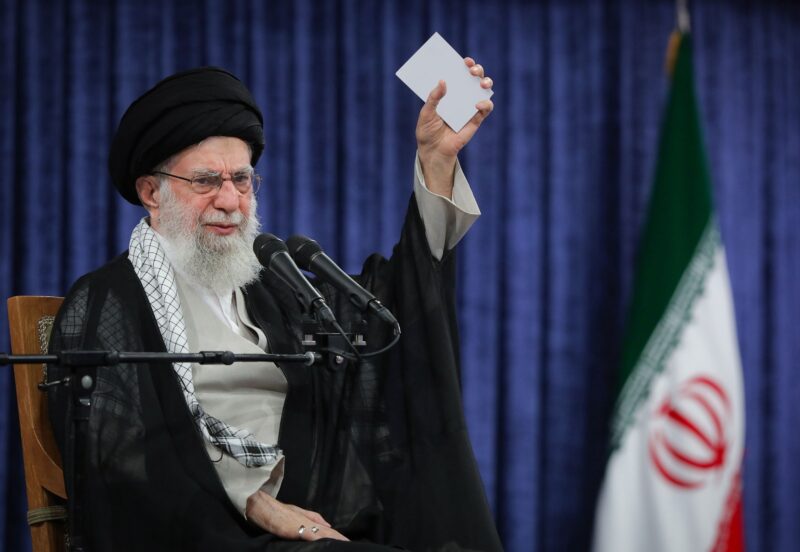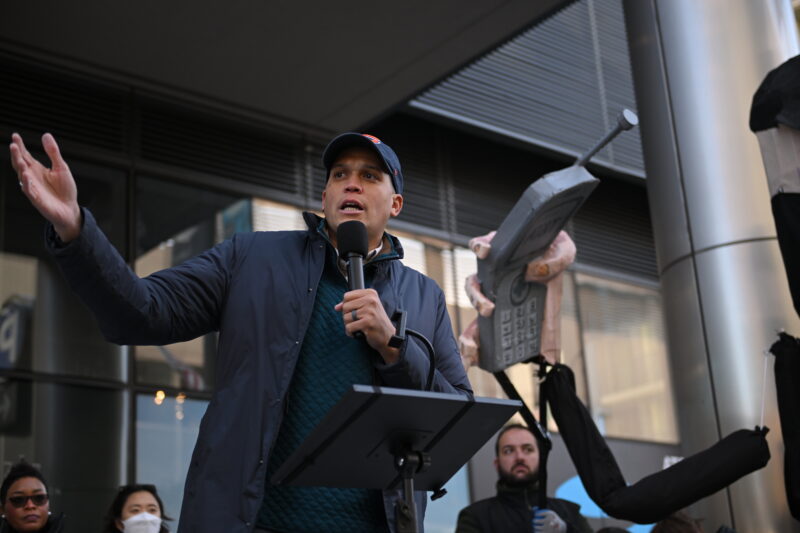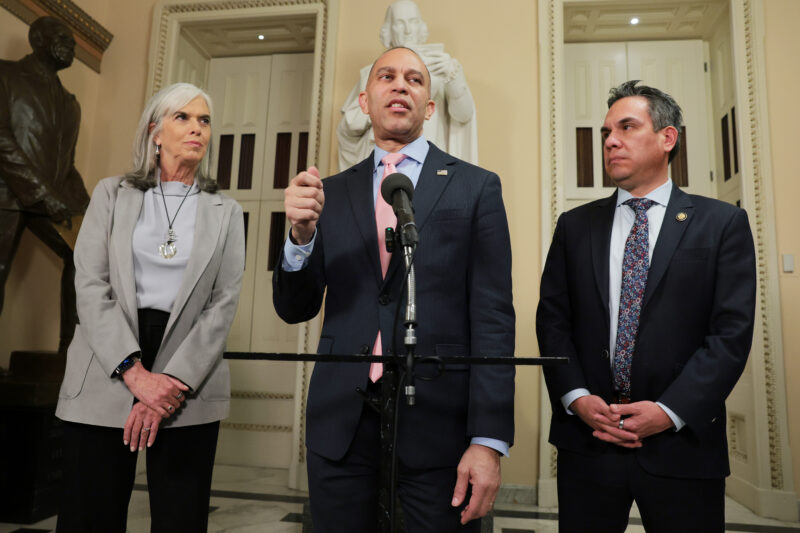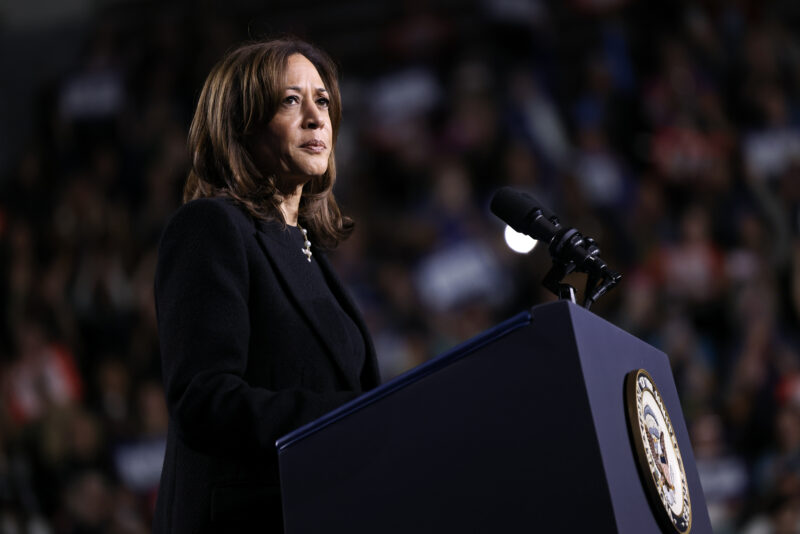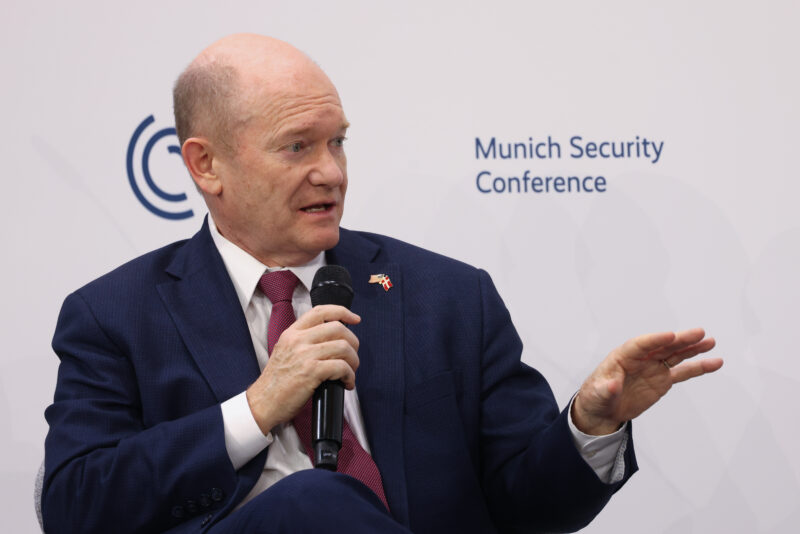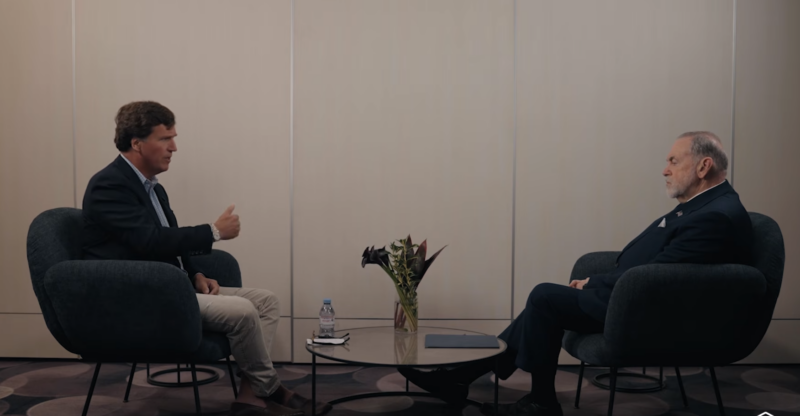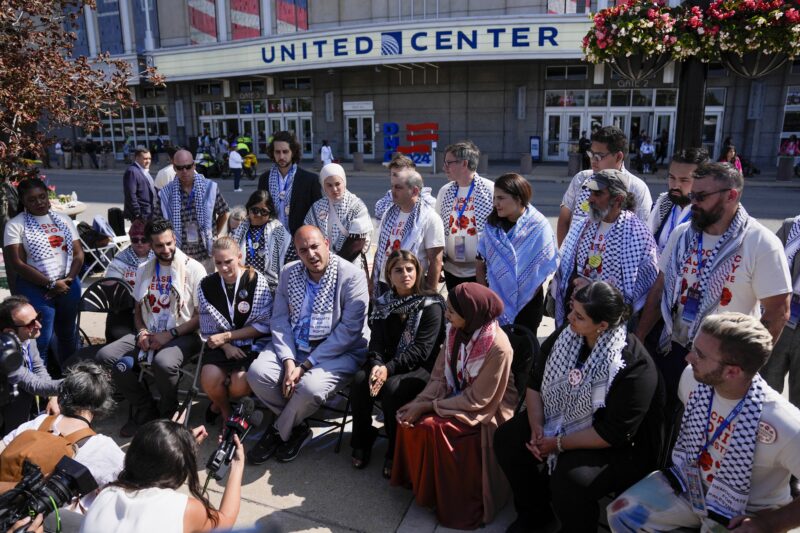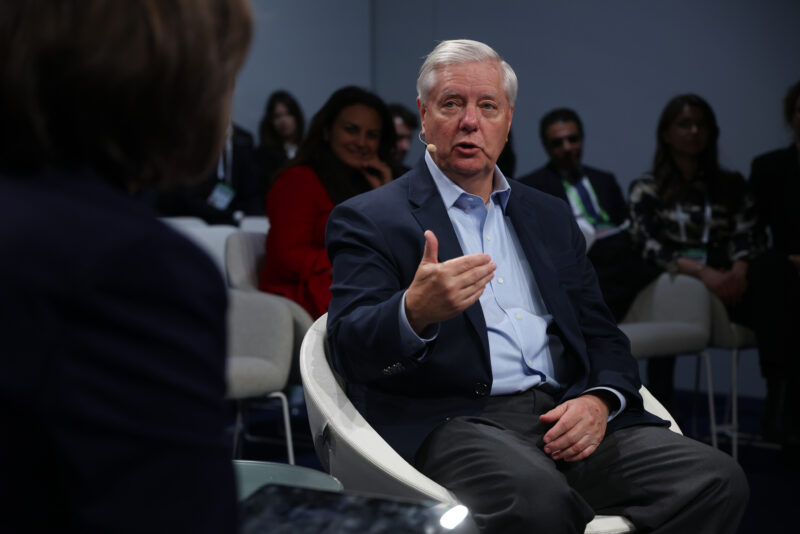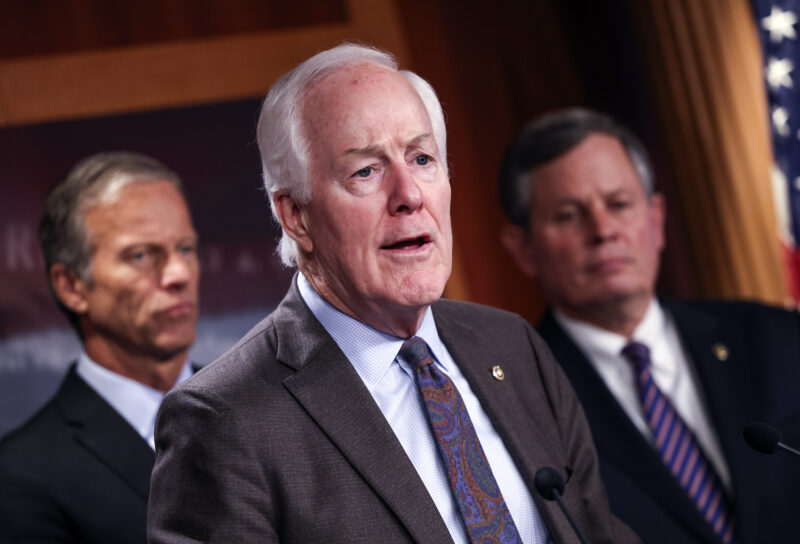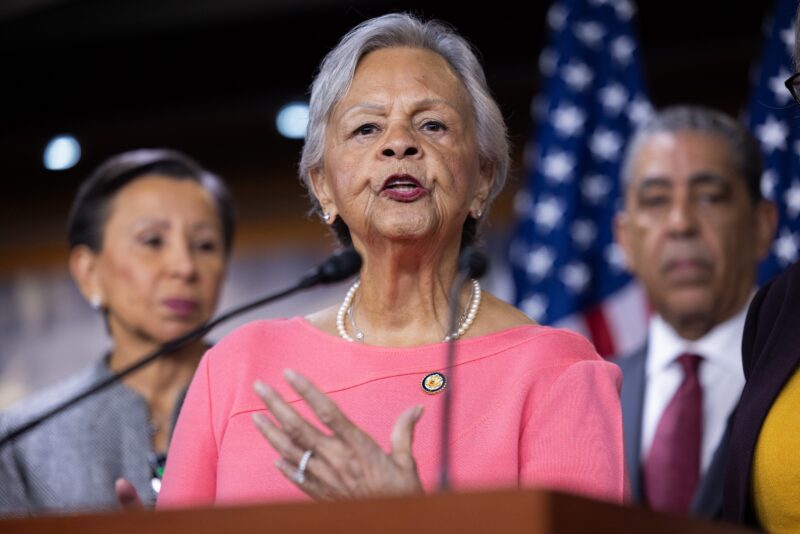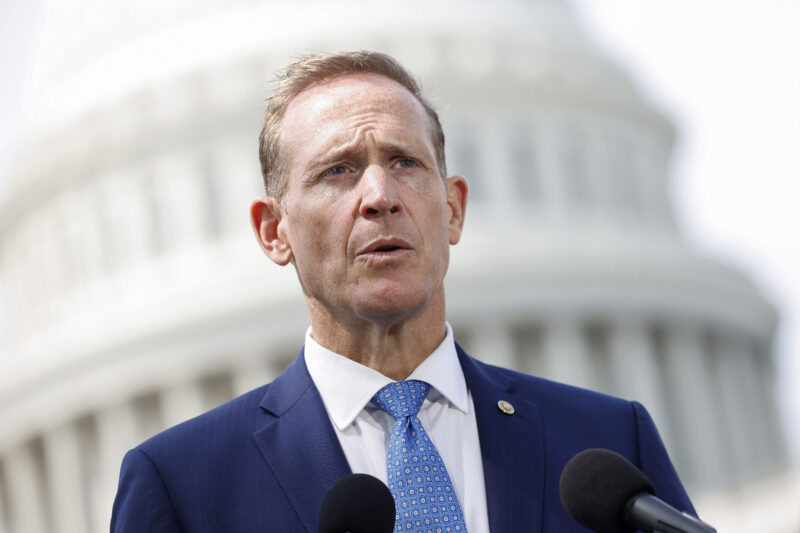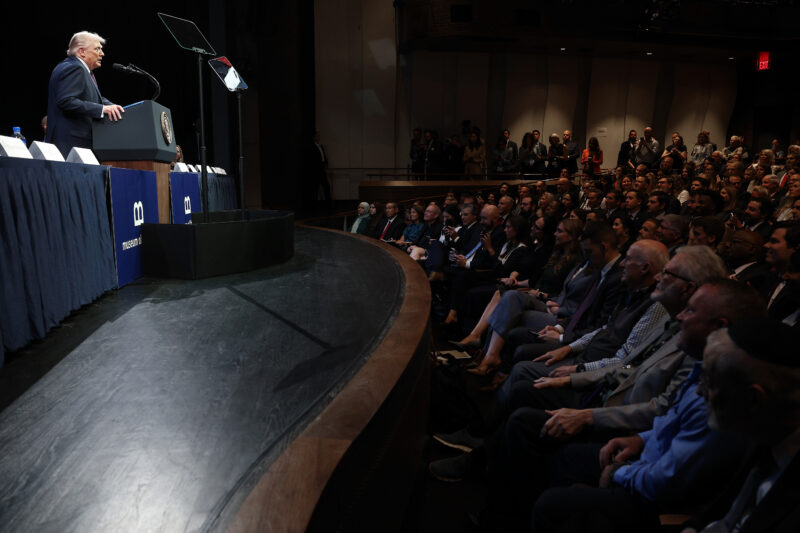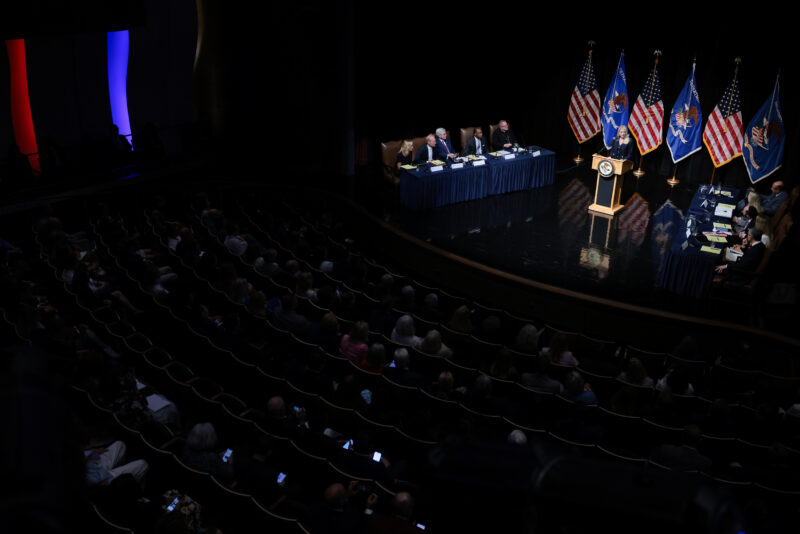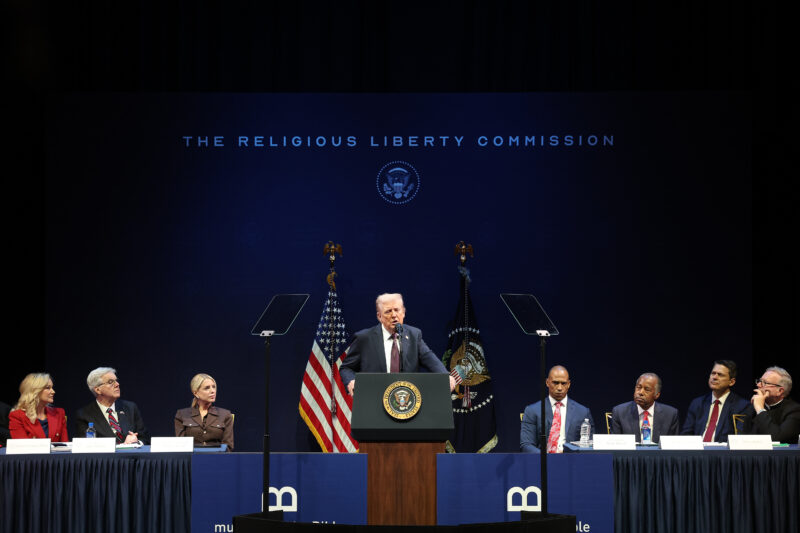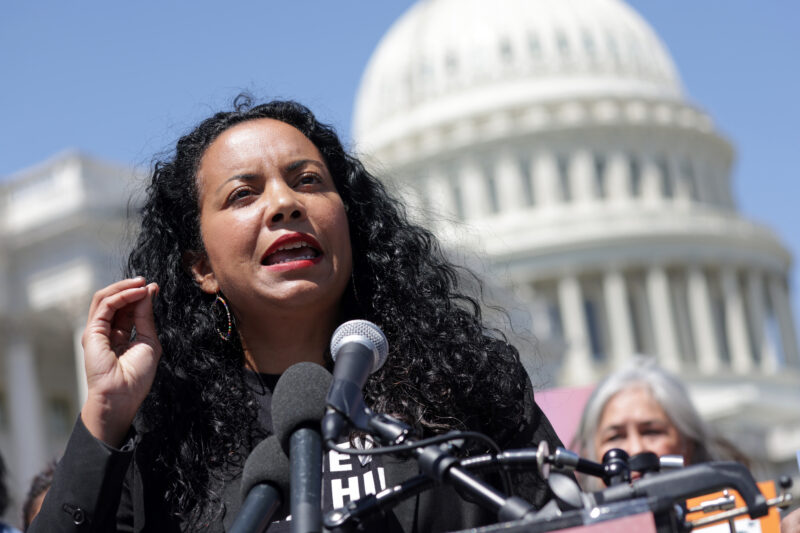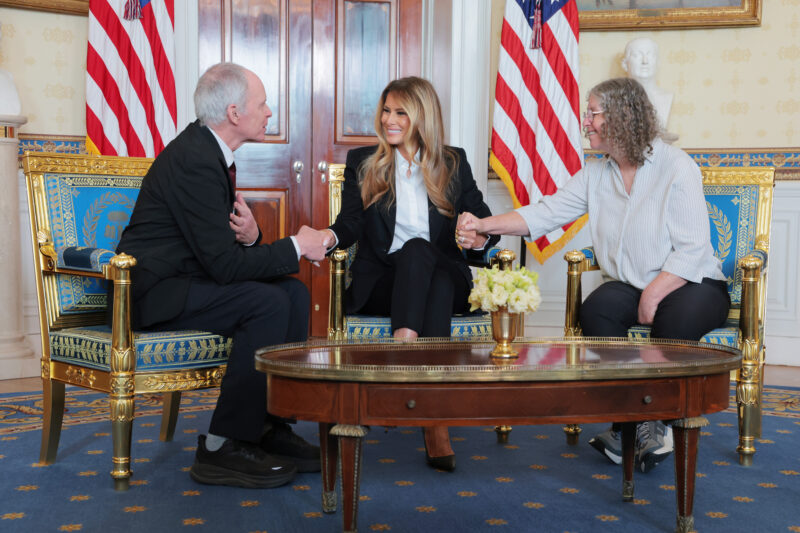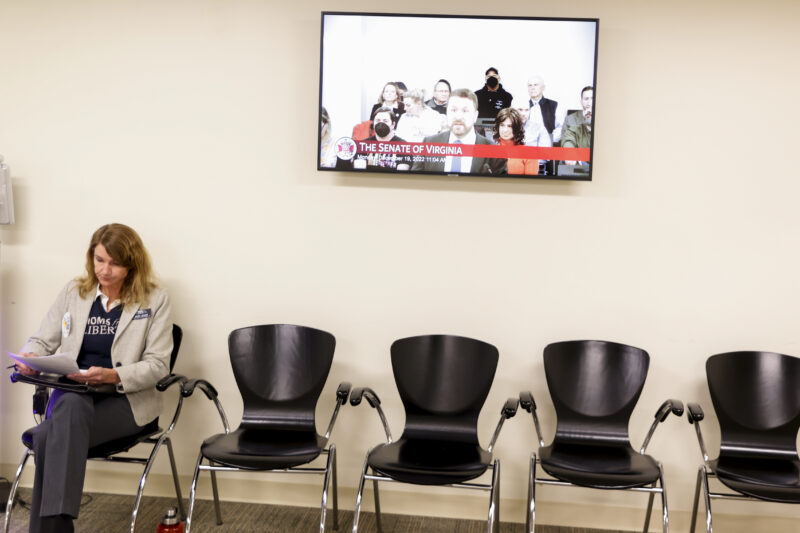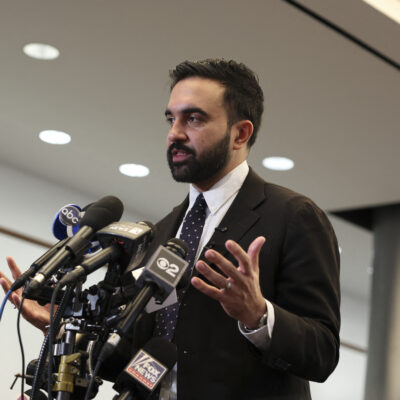Progressive Senate Dems push to condition aid to Israel
The progressive push comes as one top Biden official said the White House is pressuring Israel to restrain its operations in southern Gaza when the current pause expires

Anna Moneymaker/Getty Images
Sen. Brian Schatz (D-HI) leaves a meeting with Senate Democrats at the U.S. Capitol Building following passage in the House of a 45-day continuing resolution on September 30, 2023 in Washington, DC.
Senate Democrats are expected to debate a push by some progressives to impose conditions on the administration’s request for $14 billion in emergency military aid to Israel during a caucus lunch on Tuesday.
Around a dozen Democrats met with Israeli officials in the Capitol on Monday evening in a sitdown organized by Sen. Tammy Duckworth (D-IL). Sen. Brian Schatz (D-HI) described the conversation as “extremely frank.”
“We just want to be assured that they are abiding by American values as they try to dismantle Hamas,” Schatz told reporters. “And we all conveyed that collectively and clearly. I do believe they heard us, but obviously, we have a long way to go.”
Lawmakers said the discussion centered around Israeli military practices in the current conflict, including tactics, strategy, operational goals and rules of engagement, as well as the civilian casualty rate in Gaza and plans for Gaza after the war.
The meeting included several lawmakers who have expressed concerns with Israel’s operations in Gaza and the resultant civilian casualties, as well as more hawkish pro-Israel lawmakers. They met with a small delegation of IDF members visiting the U.S., led by a major general, a diplomat at the Israeli Embassy in Washington told Jewish Insider.
The effort to impose conditions has been rejected out of hand by some Democrats, such as Senate Foreign Relations Committee Chair Ben Cardin (D-MD).
“I don’t believe we should do that. I’ll look forward to our conversations but I don’t believe that it would be effective” Cardin told JI yesterday. “I think the way that the president [has] handled his conversations with the Israelis has produced tangible results, including humanitarian assistance and a strategy on the military side that has made less [civilian] loss of life. So I think we’ve had [an] impact on them.”
The senators said the discussion had focused on the military aspects of the conflict, and that the military officials said they couldn’t speak to political decision-making by civilian leadership in Israel or potential U.S.-imposed conditions — but conditionality was on lawmakers minds.
The progressive push to condition aid to Israel comes as a senior Biden White House official said Monday that the administration, at all levels, is pressuring Israel to restrain its operations in southern Gaza when the current pause expires.
“The conduct of the Israeli campaign when it moves to the south must be done in a way that is to a maximum extent not designed to produce significant further displacement of persons,” the official said. “You cannot have the sort of scale of displacement that took place in the north replicated in the south… It also has to be conducted in a way that is maximally de-conflicted with humanitarian facilities — power, water, humanitarian sites, hospitals, other facilities including the many U.N.-supported shelters located throughout south and central Gaza.”
The official said Israel understands it will have to pursue a “different type of campaign” in the south.
President Biden over the weekend indicated that he wasn’t against efforts to impose conditions on Israeli aid, although White House officials have since sought to distance the administration from the effort.
“What [the president] also said, right after acknowledging that [conditions were] ‘a worthwhile thought,’ was that the approach he has chosen to take so far has produced results and outcomes,” National Security Council spokesperson John Kirby told reporters on Monday. “So, the approach that we’re taking with Israel and, quite frankly, with our partners in the region is working. It’s getting aid in to people that need it. It’s getting a pause in the fighting. It’s getting hostages out. It’s getting Americans out.”
Conditioning aid to Israel would be an unprecedented step, one long opposed by pro-Israel groups and a majority of U.S. lawmakers. Sen. Bernie Sanders (I-VT), one of the most vocal proponents of conditioning aid, said following the meeting that he continues to believe such a move is necessary. But several other attendees — even critics of Israel’s military operation — voiced opposition to conditioning aid.
Schatz suggested that conditions could take various forms, including lower-impact provisions like requirements to report to Congress or “a normal standard requirement for foreign military financing.” The laws regulating all U.S. foreign military financing already apply to aid to Israel.
“I don’t think money to help Israel should be an exception to the general practice that the Congress has in describing how they want and expect the money to be spent,” Schatz said. The administration’s aid request is subdivided into a variety of specific categories, such as purchases of ammunition and Iron Dome interceptors.
Sen. Peter Welch (D-VT) said that the rate of civilian casualties in Gaza is not “sustainable” but stopped short of endorsing conditions.
“We have to have the debate. The massive loss of civilian life — it’s wrong. The idea of this bombing resuming and going back to that level of casualties is very alarming to me,” Welch told JI. “But there’s also the tragedy and the horror that was inflicted on Israeli civilians. That is brutal and unspeakable. The issue here is that Hamas is the enemy, but the Palestinian people aren’t.”
Sen. Sheldon Whitehouse (D-RI) indicated he wasn’t fully satisfied with the responses from the Israeli officials but said he is not currently supporting conditions.
Sen. Mark Kelly (D-AZ) said it’s “important to have these discussions and get the answers that we need.”
“It’s important to be clear here, Israel was violently attacked on Oct. 7… it was barbaric,” Kelly said. “They have a right to defend themselves and we have traditionally supported Israel in their national defense. It’s in our best interest as well.”
Sen. Chris Van Hollen (D-MD), who has supported conditioning aid to Israel in the past, told JI he is waiting on responses from the administration to questions that Senate Democrats posed about Israel’s military operation as he considers whether to support conditions.
Any effort to condition aid is likely to face opposition from Republicans, although several who spoke to JI yesterday said they’re waiting to see what, if anything, Democrats put forward.
“Israel has to decide how to fight what is an existential threat,” Sen. Susan Collins (R-ME), the ranking member of the Senate Appropriations Committee, told JI. “Israel is not taking little children and elderly people hostage. The laws of war have been totally ignored and violated by Hamas over and over again. I’m very eager to see the support for Israel pass in the supplemental. And Israel has suggested a way that humanitarian assistance could be done, and it seemed to make sense to me.”
Before taking over the top GOP Appropriations spot, Collins had pledged to fight efforts to place conditions on aid to Israel.
Sen. Thom Tillis (R-NC) said he’d be watching for Israeli leadership’s response to any proposed conditions.
“I think it depends on the limits and how well received it would be to people who are on the battlefield,” Tillis told JI. “To me, it would be very important to see how Israeli leaders would react to it, if they think that they’re manageable, and do not create any constraints. But I don’t think that the United States should ever get on the front end of determining what’s best for Israel. I think Israel’s in the best position.”
Beyond the debate over conditions, further issues loom for the supplemental bill, which is expected to include humanitarian support for Gaza, aid to Ukraine and Taiwan and border security funding.
Lawmakers are working to hammer out what could be a far-reaching border security deal with policy changes that go beyond the additional funding that the administration proposed. Senators said Monday that progress is underway but there are still major issues to be worked out, with a prospective deadline at the end of the week.
Without satisfactory border policy, most Republicans will not support the supplemental, Tillis told reporters. “This whole exercise is about getting a majority of the Republican Conference behind the supplemental that has border security measures in it. Absent that, we’re not going to get on the supplemental,” he explained.
On the House side, though, border policy changes could be a poison pill for some progressive Democrats, while some conservative Republicans might balk at additional funding to Ukraine, potentially requiring a delicate coalition to ultimately move the bill forward — if House Republicans agree to take up the Senate’s combined bill at all.
Please log in if you already have a subscription, or subscribe to access the latest updates.





